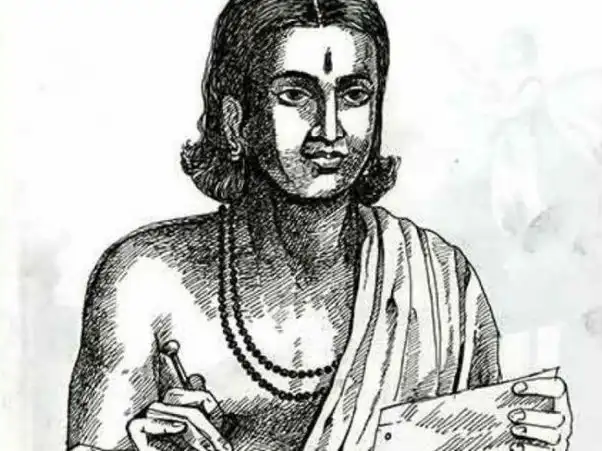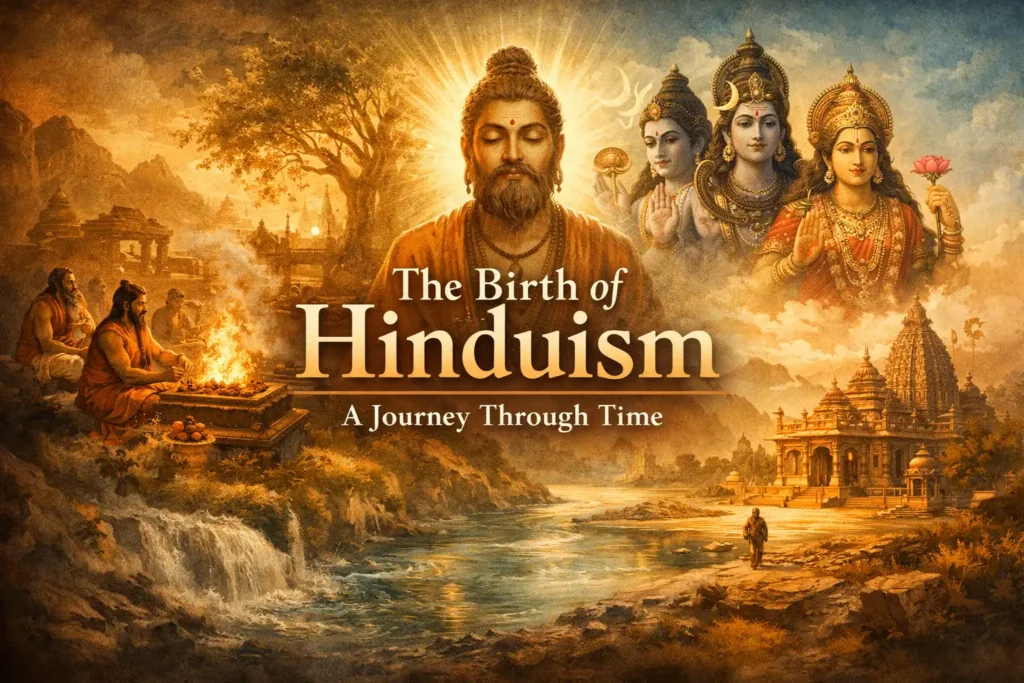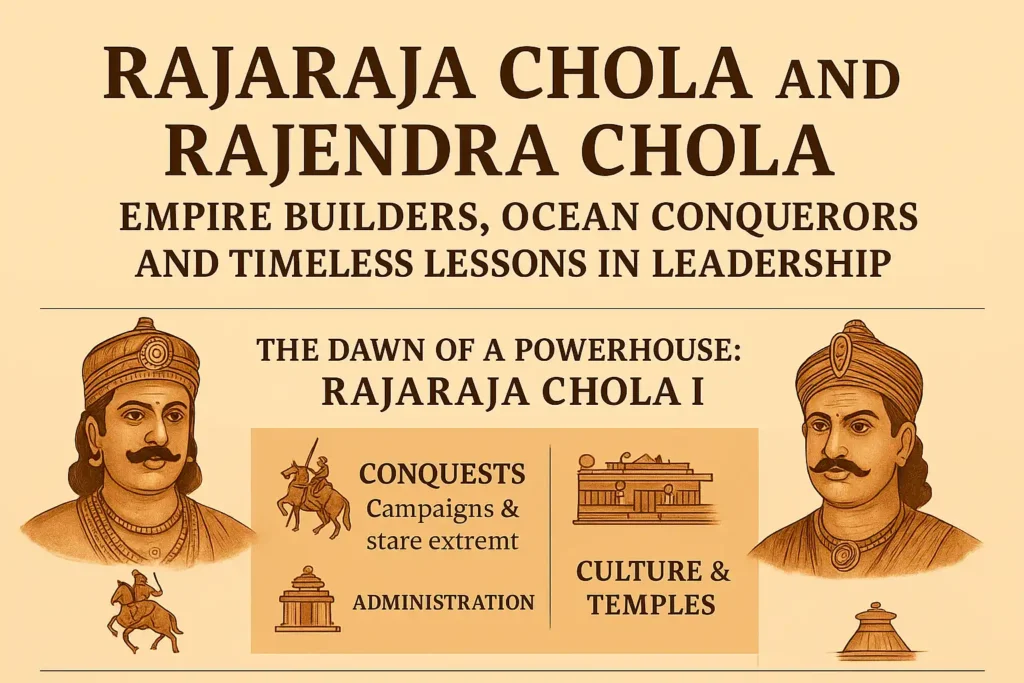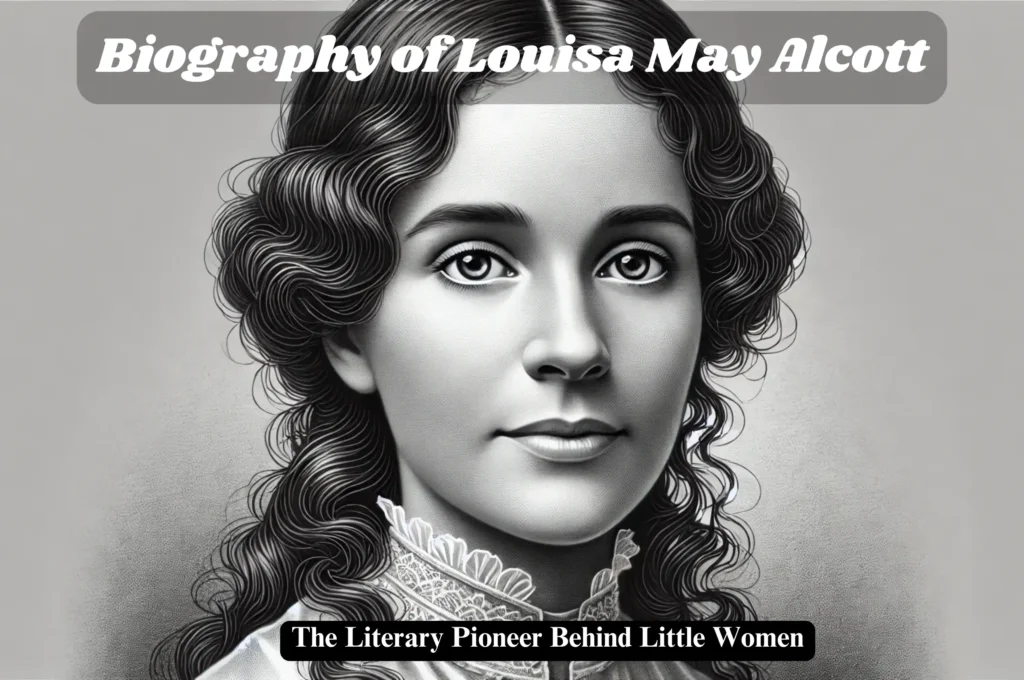Discover the remarkable journey of Kalidas in “The Life Story of Kalidas“, one of the greatest poets and playwrights in Sanskrit literature. From his early life marked by naivety to his transformation into a literary genius, Kalidas’s story is a testament to the power of perseverance and intellectual curiosity. Learn about his significant works like Shakuntala and Meghaduta, and explore his lasting impact on Indian literature and culture. Hope you must have read “Biography of Kalidasa“.
The Life Story of Kalidas
Kalidas From Foolish to Genius

Table of Contents
Introduction: Who Was Kalidas?
Kalidas, often hailed as one of the greatest poets and playwrights in the history of Sanskrit literature, holds an unparalleled position in Indian cultural and literary heritage. Revered for his eloquence, profound storytelling, and intricate poetic works, Kalidas has left an indelible mark that continues to influence and inspire scholars and literary enthusiasts alike. His contributions to Sanskrit literature are not only monumental but also timeless, transcending the barriers of language and geography.
Born in ancient India, Kalidas’s exact birthplace and dates remain subjects of scholarly debate, adding an element of mystery to his already fascinating persona. Despite the uncertainties surrounding his early life, his literary oeuvre provides a window into his genius. Masterpieces such as “Shakuntala,” “Meghaduta,” and “Raghuvamsha” showcase his mastery over language and his deep understanding of human emotions, nature, and spirituality.
Kalidas’s works are characterized by their exquisite use of metaphors, similes, and vivid imagery, making them a treasure trove for those studying classical Indian literature. His ability to weave intricate narratives with philosophical insights has earned him a revered status, often equated with the likes of Shakespeare in Western literature. Through his plays and poems, Kalidas has captured the essence of Indian ethos, blending mythology, religion, and the natural world into a harmonious literary symphony.
The significance of Kalidas in Indian history and literature cannot be overstated. His writings not only reflect the cultural and social milieu of his time but also offer timeless wisdom that continues to resonate with contemporary audiences. As we delve deeper into the life story of Kalidas, we will explore the transformative journey of this remarkable figure from perceived foolishness to renowned genius, uncovering the layers of his personality and the legacy he has left behind.
Explore Category: Biographies
Early Life: The Foolish Youth
Kalidas, one of the greatest poets and dramatists in classical Sanskrit literature, was not always recognized for his intellect and artistic prowess. In his early life, he was often regarded as a simpleton, with numerous stories and anecdotes illustrating his initial foolishness and lack of education. Born into a Brahmin family, Kalidas’s upbringing did not hint at the genius he would eventually become.
One of the most popular tales recounts how he was once found sitting on a tree branch, attempting to cut it off from the trunk. This anecdote vividly captures his naïveté, as he was oblivious to the fact that cutting the branch would inevitably cause him to fall. People who witnessed this incident could not help but laugh at his apparent lack of common sense, further solidifying his reputation as a fool.
Another well-known story involves his marriage to a highly intelligent and learned woman. According to legend, Kalidas’s future wife set a condition that she would only marry the wisest man in the land. In a twist of fate, Kalidas, who was then known more for his simplicity than wisdom, was presented as a potential suitor. Through a series of misunderstandings and deceptions, he ended up marrying her. It was only after their marriage that his wife realized the extent of his ignorance, which led to her immense disappointment.
Despite these humble and somewhat embarrassing beginnings, Kalidas’s early life served as a crucial foundation for his remarkable transformation. The anecdotes of his initial foolishness are not just entertaining but also serve as a testament to the vast potential that resides within every individual, regardless of their initial circumstances. These stories of his youth highlight the stark contrast between the uneducated simpleton he once was and the literary genius he eventually became.
The Unlikely Marriage: A Twist of Fate
Kalidas, known for his simplicity and perceived foolishness, found himself at the center of a life-altering event that would change the course of his life forever. The story begins in a small village, where Kalidas’s lack of intellect was the subject of ridicule. Despite this, fate had other plans for him.
In a neighboring kingdom, a learned and wise princess named Vidyottama had declared that she would only marry a man who could defeat her in a contest of wit and knowledge. Many scholars and intelligent men attempted to win her hand, but none succeeded. Her father, the king, grew increasingly desperate as the princess rejected suitor after suitor.
This excellence of Vidyottama had created jealousy in the minds of many scholars. They all tried to defeat her, but failed every time. Their failure gave rise to more jealousy and envy towards Vidyottama in their minds. They felt small in front of Vidyottama’s scholarship, and this feeling kept tormenting them deep inside.
This feeling of jealousy and insult led the scholars to hatch a conspiracy. They thought that if they got Vidyottama married to a fool, both her reputation and scholarship would be tarnished. Inspired by this thought, they hatched a plan to humiliate Vidyottama.
In the process of searching for the great fool, the scholars visited many places and met various people. To marry a learned woman like Vidyottama, a person was needed who could meet the criteria of the scholars but also meet the opposite of their conditions. The scholars continued their search, and in the process, they also encountered many types of foolish persons. But none had the qualities they were looking for.
During this search, one day he reached a village, where he saw Kalidas. Kalidas was sitting on a tree branch and was cutting the same branch. Seeing this scene the eyes of the scholars lit up. They understood that this was the person to whom they could give the title of a great fool. This foolishness of Kalidas seemed to them to be sufficient proof and they immediately chose him.
A turning point in the marriage process came when Vidyottama asked her future husband Kalidasa some questions. These questions were to test his scholarship. Usually, the questions asked by a learned lady are not easy to answer, and a similar situation arose here. The scholars had already advised Kalidasa to keep quiet, so that his stupidity would not be exposed.
As Vidyottama began asking her questions, Kalidasa remained completely silent. Vidyottama asked questions ranging from complex mathematical equations, principles of ethics, and the mysteries of various scriptures. But Kalidasa did not speak a single word. His silence astonished Vidyottama and all the scholars present.
Vidyottama considered Kalidas’ silence as a symbol of his deep thinking and scholarship. She thought that Kalidas was in such deep thought that he was answering those questions in silence. Vidyottama accepted this silence of Kalidas as the right answer and thus the marriage was completed.
This whole incident proved that sometimes silence can be more effective than words. Kalidasa’s silence established him as a scholar, and Vidyottama accepted him as her life partner. This story is an example of how a person can turn his weakness into his strength through circumstances and cleverness.
That very night Vidyottama saw a camel and thought of testing Kalidasa’s intelligence. She asked Kalidasa, “Kimdim?” which meant “What is this?” Kalidasa, who was a real fool, could not answer this question correctly. He looked at the camel and replied, “Utr.” This answer made it clear to Vidyottama that her husband was not really a scholar but a great fool.
Knowing the conspiracy of the Pandits, Vidyottama started crying and threw her husband out. He went to the Kali temple with the intention of committing suicide, but Kali was pleased and blessed him and with that he returned to his wife after becoming proficient in the scriptures.
After reaching home and seeing the closed door, he said Anavritakapatam Dwar Dehi (Open the door). Vidyottama was surprised and asked – Asti kashchid vaagvisheshah (What is so special now?)
‘Kumarsambhava epic‘ from the word ‘Asti’
The first of these three titles of wife was Asti. On uttering this word, Kalidasa composed the epic ‘Kumarasambhavam’. This epic describes the sacred love story of Shiva and Parvati. This epic depicts the penance of Goddess Parvati and Lord Shiva in the north direction.
‘Meghdoot Khandkaavya’ from the word Kashchid
The second word was Kashchid. Inspired by this word, Kalidas composed ‘Meghdoot Khandkaavya’. This Khandkaavya depicts a dialogue between a Yaksha and a cloud, in which the Yaksha sends a message to his beloved. This composition is an excellent example of the pain of separation and the expression of love.
‘Raghuvansh epic’ from the word Vag
The third word was Vaag. With this word Kalidas composed ‘Raghuvansh Mahakavya’. This epic describes the tales of the kings of Raghuvansh. This epic not only presents tales of valour and bravery, but also contains teachings of morality and religion.
Transformation: The Quest for Knowledge
Kalidas’s transformation from a simpleton to a revered scholar is marked by an unwavering quest for knowledge. This profound journey began with the pivotal influence of his wife, whose wisdom and intellect served as a catalyst for change. Aware of his shortcomings and driven by a desire to earn respect and prove his worth, Kalidas embarked on a path of rigorous self-improvement.
Determined to shed his reputation as a fool, Kalidas immersed himself in the pursuit of learning. He sought guidance from eminent scholars of the time, delving deep into the study of ancient texts and scriptures. The journey was not without its challenges. Kalidas faced numerous obstacles, including his own initial lack of understanding and the skepticism of those around him. Yet, his resilience and commitment never wavered.
The transformation of Kalidas was a testament to his relentless dedication. He spent countless hours in meditation and contemplation, seeking to grasp the profound wisdom contained within the sacred texts. His studies spanned various disciplines, including literature, philosophy, and the arts, each contributing to his growing erudition. The influence of his wife, combined with his intrinsic motivation, played a crucial role in his intellectual awakening.
Kalidas’s metamorphosis was not merely an academic achievement but a deeply personal evolution. His journey was marked by moments of introspection and self-discovery, which further fueled his quest for enlightenment. Through perseverance and an insatiable thirst for knowledge, Kalidas eventually emerged as one of the greatest poets and dramatists in the history of Indian literature. His transformation serves as an inspiring narrative of how determination and dedication can lead to profound personal and intellectual growth.
The Emergence of Genius: Kalidas the Scholar
Kalidas’s transformation from an unremarkable individual to a revered scholar is a testimony to his remarkable intellect and dedication. His emergence as a preeminent figure in Sanskrit literature is epitomized by his masterful works that have left an indelible mark on Indian literary tradition.
One of Kalidas’s most celebrated works is ‘Shakuntala,’ also known as ‘Abhijnanasakuntalam.’ This play is a lyrical narrative that intertwines romance and drama, set against the backdrop of a rich, mythological tapestry. It tells the poignant love story of King Dushyanta and Shakuntala, highlighting themes of love, loss, and redemption. Kalidas’s exquisite use of language and his ability to capture the subtleties of human emotions have made ‘Shakuntala’ a timeless classic, studied and admired by scholars worldwide.
‘Meghaduta,’ another magnum opus, showcases Kalidas’s prowess in the genre of lyric poetry. The poem narrates the story of a lovelorn yaksha who is exiled and sends a message to his distant wife through a cloud. The vivid and evocative descriptions of nature, combined with the profound emotional undercurrents, underscore Kalidas’s unparalleled ability to blend natural beauty with human sentiment. ‘Meghaduta’ remains a cornerstone of Sanskrit literature, celebrated for its emotional depth and aesthetic elegance.
In ‘Raghuvamsa,’ Kalidas delves into epic poetry, chronicling the lineage of the Raghu dynasty. This epic not only showcases his narrative skills but also his adeptness at portraying grand historical and mythological themes. The work is a vibrant tapestry of heroism, duty, and the complexities of dharma, rendered in Kalidas’s characteristic eloquence. Through ‘Raghuvamsa,’ he explores the ideals of kingship and the intricate dynamics of human and divine interactions.
Kalidas’s contributions to Sanskrit literature are monumental. His works, characterized by their thematic richness, stylistic brilliance, and profound emotional resonance, have cemented his legacy as one of the greatest literary figures in history. His genius continues to inspire and influence scholars, poets, and readers across generations.
The Legend of Kalidas: How He Got His Name
The name ‘Kalidas’ holds significant weight in Indian literature and history, symbolizing not just a person but a remarkable journey from perceived foolishness to unparalleled genius. The origins of his name are steeped in legend and historical anecdotes, offering a fascinating glimpse into the divine inspiration attributed to his extraordinary intellect.
According to popular legend, Kalidas was initially an unlettered and naive individual. His transformation began when he was chosen as an unwitting pawn by a group of scholars who sought to humiliate a princess renowned for her wisdom. The princess, upon discovering the ploy, rejected Kalidas, prompting him to seek divine intervention. It is said that he fervently prayed to the goddess Kali, who blessed him with immense knowledge and poetic prowess. Thus, he became ‘Kalidas,’ meaning ‘the servant of Kali,’ signifying his devotion to the goddess and the divine origin of his genius.
Historical accounts provide another perspective on Kalidas’s name. Some scholars believe that ‘Kalidas’ might not have been a single individual, but a title or pseudonym adopted by multiple poets and playwrights over time. This theory is supported by the diversity and volume of works attributed to Kalidas, suggesting a collective rather than a singular authorship. Regardless of the true origin, the name ‘Kalidas’ remains synonymous with intellectual brilliance and poetic excellence in Indian culture.
The meaning behind the name ‘Kalidas’ further enriches its significance. The combination of ‘Kali,’ the fierce goddess symbolizing time and change, and ‘das,’ meaning servant, reflects the humble acknowledgment of a higher power’s role in human creativity and intellect. This humility is a recurring theme in Kalidas’s works, emphasizing the belief that true genius is a gift from the divine, to be honored and cherished.
Legacy and Influence: Impact on Literature and Culture
Kalidas, often hailed as one of the greatest poets and dramatists in Indian history, has left an indelible mark on literature and culture. His works, characterized by their poetic elegance and profound philosophical insights, have influenced countless generations of writers, poets, and scholars. Kalidas’s literary genius is evident in his masterful use of Sanskrit, which has set benchmarks for linguistic excellence and poetic expression.
One of the most significant impacts of Kalidas’s work is seen in the realm of classical Indian literature. His plays, such as “Shakuntala,” and his epic poems like “Meghaduta” and “Raghuvamsa,” are not only celebrated for their artistic merit but have also served as a source of inspiration for subsequent literary endeavors. Writers and poets across ages have drawn from his themes, narrative techniques, and stylistic flourishes, ensuring that his influence permeates through time.
Beyond literature, Kalidas’s contributions extend to Indian culture as a whole. His portrayal of nature, human emotions, and the interplay of divine and earthly realms resonates with the cultural ethos of India. His works often reflect the values and philosophical underpinnings of Hinduism, thereby enriching the spiritual and cultural fabric of the society. The vivid imagery and emotive language used by Kalidas have also inspired various forms of art, including painting, music, and dance, further solidifying his cultural significance.
In contemporary times, Kalidas’s writings continue to be relevant. Scholars and literary critics frequently study his works to explore the depths of his literary artistry and philosophical thought. His influence is evident in modern adaptations of his plays and poems, which are performed across the globe, bringing his timeless stories to new audiences. Kalidas’s enduring legacy is a testament to the universal appeal and profound impact of his genius, ensuring that his works remain a cornerstone of Indian literature and culture.
Conclusion: The Timeless Tale of Kalidas
The life story of Kalidas is a testament to the transformative power of perseverance and intellectual curiosity. From the depths of ignorance, Kalidas emerged as one of the most celebrated literary geniuses in Indian history. His journey from foolishness to brilliance is not merely a personal triumph but also a beacon of inspiration for all who seek to better themselves.
Kalidas’s early years, marked by naivety and lack of knowledge, seemed unremarkable and even pitiable. However, it was his unwavering determination and the pivotal support of those who believed in his latent potential that set him on the path to greatness. His transformation was not instantaneous but a gradual process of relentless learning and self-improvement. This metamorphosis underscores a powerful life lesson: with dedication and the right guidance, one can transcend their perceived limitations.
The works of Kalidas, including masterpieces like “Shakuntala” and “Meghaduta,” continue to be celebrated for their profound depth and literary excellence. These creations are not just cultural treasures but also symbols of what can be achieved through tireless effort and intellectual rigor. Kalidas’s legacy is a reminder that true genius is often forged in the crucible of hardship and relentless pursuit of knowledge.
Moreover, Kalidas’s story highlights the importance of humility and the willingness to learn. His initial ignorance did not define his destiny; instead, his openness to growth and change paved the way for his eventual acclaim. This narrative offers a timeless moral: that no matter one’s starting point, with perseverance and an earnest desire to learn, one can achieve greatness.
In conclusion, the tale of Kalidas is not just a historical account but a timeless inspiration. It encourages us to embrace our potential, seek knowledge, and persist through challenges. His life is a poignant reminder that the journey from foolishness to genius is not only possible but also profoundly rewarding.
Also Read:
- Kabir Ke Dohe 21 – 25
- Kabir Ke Dohe in English
- Major Literary Works of Saint Kabir
- The Philosophy of Kabir


















